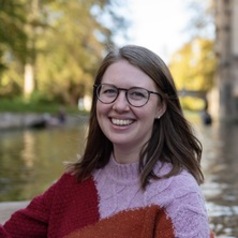
Lily Bentley
Postdoctoral research fellow, The University of Queensland
Lily is a movement ecologist interested in how and where highly mobile predators travel, what their journeys can teach us about their evolutionary histories, and how to translate research findings into effective conservation policies.
She is currently working on using animal tracking data and network models to understand migratory connectivity in the oceans.
She received her BSc (Hons) from the University of Queensland, studying the thermal physiology and behaviour of wild saltwater crocodiles. In her PhD, at the University of Cambridge, she investigated the foraging ecology of albatrosses and petrels across the Southern Ocean.
Less ![]()
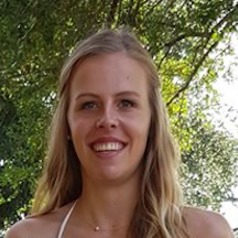
Lily Hospers
PhD Candidate, University of Sydney
My research is centred around building a better understanding of the physiological and physical factors that determine human heat strain and the risk of heat-related health problems during work, physical activity and heat waves.
Less ![]()

Lily Hsueh
Associate Professor of Economics and Public Policy, Arizona State University
Dr. Lily Hsueh is an Associate Professor of Economics and Public Policy at the ASU School of Public Affairs and a Senior Global Futures Scientist at the Julie Ann Wrigley Global Futures Laboratory, Arizona State University.
Hsueh is currently a Visiting Scholar at the Woods Institute for the Environment, Stanford University.
Her areas of expertise are natural resource and environmental economics and policy, political economy, governance, applied econometrics, and mixed methods. Hsueh’s current research investigates how different forms and scales of alternative and decentralized governance systems (e.g., market-based policies, voluntary programs) interact with and shape the public provision of public goods and the management of natural resources and the environment.
Prior to joining ASU, Hsueh held the National Research Council Postdoctoral Fellowship at the National Oceanic and Atmospheric Administration.
Before academia, Hsueh served as a Senior Analyst in Economic Research at the Federal Reserve Bank of San Francisco. She received a Ph.D. in Public Policy & Management from the University of Washington and a MSc in Economics from University College London. Hsueh’s undergraduate degree was a BA in Economics from UC Berkeley.
Less ![]()
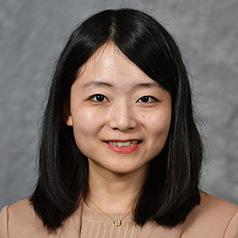
Lily Zhu
Assistant Professor of Management, Information Systems and Entrepreneurship, Washington State University
I am an Assistant Professor in the Department of Management, Information Systems, and Entrepreneurship at Washington State University’s Carson College of Business. I received my Ph.D. in Organization and Management from the Paul Merage School of Business, University of California, Irvine in Spring 2022.
My research primarily examines organizational behavior and entrepreneurship at the micro level, and I am currently focusing on questions related to how emotions and emotion management influence entrepreneurial pitches, creativity, and decision making. My research won the Best Paper Award and the Distinguished Paper Award from the Academy of Management annual meeting 2021.
I am also passionate about teaching. I have taught organizational behavior as part of the core curriculum for undergraduate business majors and assisted in several MBA or undergraduate courses. I won the Outstanding PhD Instructor Award for the undergraduate program at the Paul Merage School of Business for the 2020-2021 academic year.
Prior to graduate school, I earned my bachelor’s degree from Johns Hopkins University with double major in psychology and economics. I also conducted research at the Institute for Applied Economics, Global Health, and the Study of Business Enterprise at Johns Hopkins University and worked at a consulting firm in Washington D.C.
In a former life, I was a singer, lyricist, and ran a music composition club.
Less ![]()
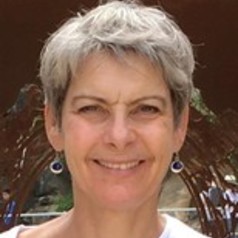
Lin Schwarzkopf
Professor in Zoology, James Cook University
I study vertebrate ecology with a focus on reptiles and amphibians.
Less ![]()
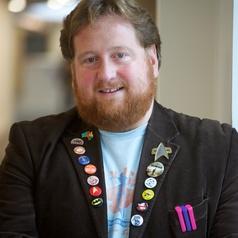
Lincoln Geraghty
Professor of Media Cultures, University of Portsmouth
Following undergraduate and postgraduate studies at Lancaster and Nottingham universities I came to Portsmouth in 2004, when I joined as Lecturer in Media Studies. In January 2007, I become Principal Lecturer in Media Studies and was Subject Leader for the BA(Hons) Media Studies and combined honours degree programmes until 2011. In May 2011, I was made Reader and then in June 2019 I became Professor of Media Cultures.
My PhD focussed on Star Trek fans and American culture and my research interests have rested mainly in the areas of science fiction, popular culture, American film and television and fandom. As I have continued to publish on fans and fan practices my research has turned to examine the cultural and creative links between audiences and the media entertainment industries; particularly the affective and nostalgic relationships fans create with media texts through production, preservation and place.
Less ![]()
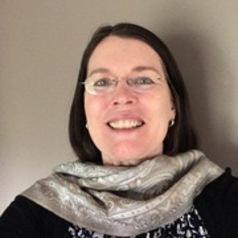
Linda Barwick
Emeritus professor, University of Sydney
I am a musicologist, specialising in the study of Australian First Nations musics, immigrant musics and the digital humanities (particularly archiving and repatriation of ethnographic field recordings as a site of interaction between researchers and cultural heritage communities). I have studied community music practices through fieldwork in Australia, Italy and the Philippines. Themes of my research include analysis of musical action in place, the language of song, and the aesthetics of cross-cultural musical practice. I also publish on theoretical issues, including analysis of non-Western music, archiving of music and dance, and research implications of digital technologies.
Less ![]()
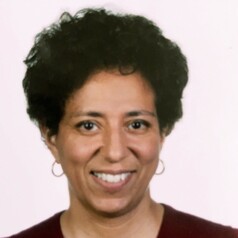
Linda Bishai
Adjunct Professor of International Affairs, George Washington University
Dr Linda Bishai joined the Institute for Defense Analyses (IDA) in April 2020, working on a wide range of international security issues including African regional economic communities, security cooperation in Africa, and monitoring instability in central and southern Africa. She has twenty years of experience in teaching, training and writing on international law, peacebuilding and security sector reform, and preventing/countering violent extremism. In her previous positions at the American Bar Association and at the U.S. Institute of Peace, Bishai designed and delivered workshops on teaching human rights in Iraq, teaching peacebuilding and election violence prevention in Sudan, women’s roles in preventing violent extremism in Nigeria and Kenya, and developing effective responses to radicalization and violent extremism in Kosovo. As Director of North Africa programs at USIP, Bishai facilitated dialogues on just and sustainable security sector responses to violent extremism and border security with high-level officials and civil society actors from the Sahel and the Maghreb. As Director of Research, Evaluation and Learning at the ABA Rule of Law Initiative, Bishai oversaw the activities of a team of legal researchers and monitoring & evaluation professionals. Her recently edited volume on Law, Security and the State of Perpetual Emergency explores the blurring of law enforcement and defence activities in the counter-terrorism context. Bishai holds a B.A. in history and literature from Harvard University, a J.D. from Georgetown University Law Center, an LLM in international law from the University of Stockholm, and a PhD in international relations from the London School of Economics.
Less ![]()
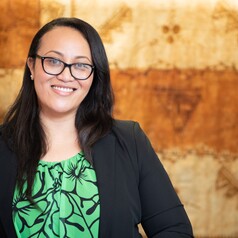
Linda Fatialofa
PhD Candidate in Forensic Psychology, Te Herenga Waka — Victoria University of Wellington
Linda is a Pacific researcher of Samoan descent completing her PhD in Forensic Psychology. She is developing a descriptive model of youth offending and utilises narratives from predominately Māori and Pacific justice-involved male youth. Linda is also completing her Postgraduate Diploma (PGDip) in Clinical Psychology at Victoria University of Wellington.
Less ![]()
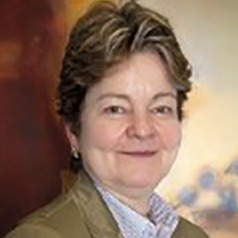
Linda Ferrell
Professor of Marketing, Auburn University
Linda Ferrell is the Globe Life Professor of Marketing. She served on the faculty at Belmont University, University of New Mexico, University of Wyoming, University of Northern Colorado, Colorado State University, and University of Tampa. She co-managed two, $1.25 million grant for business ethics education through the Daniels Fund Ethics Initiative at the University of New Mexico with her husband, O.C. Ferrell. She was also jointly responsible for securing over $5 million for the first Bill Daniels Distinguished Professor Chair of Business Ethics at the University of Wyoming.
Ferrell earned a doctorate from the University of Memphis. She holds an MBA and a bachelor's in fashion merchandising from Illinois State University. Her research interests include marketing ethics, ethics training and effectiveness, the legalization of business ethics as well as corporate social responsibility and sustainability.
She has published in Journal of the Academy of Marketing Science, AMS Review, Journal of Business Ethics, Journal of Public Policy & Marketing, Journal of Business Research, as well as others. She has co-authored numerous books including Business Ethics: Ethical Decision Making and Cases (12th edition), Business and Society (4th edition), Management (3rd), and Introduction to Business (12th edition).
Professionally, Ferrell served as an account executive in advertising with McDonald's and Pizza Hut's advertising agencies in Houston, Indianapolis, and Philadelphia. She was recently honored as the Innovative Marketer of the Year for the Marketing Management Association. Ferrell is on the board of directors of Mannatech, Inc., a NASDAQ-listed health and wellness company. She serves on the Board of the National Association of State Boards of Accountancy-Center for the Public Trust. She serves on the Executive Committee, Board, and Academic Advisory Committee of the Direct Selling Education Foundation. She is on the Cutco/Vector College Advisory Board. She is immediate past president of the Academy of Marketing Science and past president of the Marketing Management Association. Ferrell also serves as an expert witness in ethics and legal disputes.
Less ![]()

Linda Gallo
Lecturer in Biomedical Sciences, School of Health, University of the Sunshine Coast
Linda Gallo's research interest is cardiometabolic disease and lifestyle factors that affect this, particularly in relation to nutrition and pregnancy.
Linda’s PhD investigated how low birth weight affects kidney development and the increased risk of high blood pressure and kidney disease in adulthood. Her postdoctoral research focused on a new drug class for diabetes mellitus, SGLT2 inhibitors, and its effects on kidney and heart function.
In 2016, Linda established a research program which combines her speciality areas. This includes the assessment of diet, physical activity, and cardiometabolic health in young adults; maternal dietary intake, supplement use, nutrient status, and obstetric outcomes; and the impact of lockdowns on preterm birth rates.
She collaborates with numerous researchers and clinicians, including those interested in the impacts of adverse prenatal exposures such as alcohol, links between maternal microbiome and pregnancy outcomes, and how diabetes is a risk factor for severe influenza and COVID-19.
Less ![]()
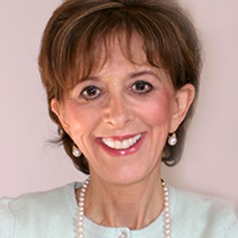
Linda Goldman
Linda Goldman has a Fellow in Thanantology: Death, Dying, and Bereavement (FT) with an MS degree in counseling and Master's Equivalency in early childhood education. Linda is a Licensed Clinical Professional Counselor (LCPC) and a National Certified Counselor (NBCC). She worked as a teacher and counselor in the school system for almost twenty years. Currently she has a private grief therapy practice in Chevy Chase, MD. She works with children, teenagers, families with prenatal loss, and grieving adults. Linda shares workshops, courses, and trainings on children and grief and trauma and currently teaches as adjunct faculty in the Graduate Program of Counseling at Johns Hopkins University. She has also taught on the faculty at the U. of Md. School of Social Work/Advanced Certification Program for Children and Adolescents and lectured at many other universities including Penn. State University, Buffalo School of Social Work, University of North Carolina, The National Transportation Safety Board, and The National Changhua University of Education in Taiwan as well as numerous schools systems throughout the country. She teaches the course on “Working with LGBT Youth” at Johns Hopkins Graduate School, the University of Maryland School of Social Work, and the Child Welfare Administration. She has written many articles, including Healing Magazine’sHelping the Grieving Child in the Schools, The Bullying Epidemic, Creating Safe Havens for Gay Youth in Schools (2006) and Parenting Gay Youth (2008). Some of her articles on children and grief and trauma have been translated into Chinese for the Suicide Prevention Program of Beijing. She appeared on the radio show Helping Gay Youth: Parents Perspective (2008) and has testified at a hearing before the MD Joint House and Senate Priorities Hearing for Marriage Equality (2007) and the MD Senate Judicial Proceedings Committee for the Religious Freedom and Civil Marriage Protection Act (2008).
Linda has worked as a consultant for the National Head Start Program, National Geographic, and was a panelist in the National Teleconference: When A Parent Dies: How to Help The Child. She has appeared on the Diane Rehms show to discuss children and grief and Dan Roderick’s Baltimore NPR Show to discuss gay youth. She was named by the Washingtonian Magazine as one of the top therapists in the MD, VA. DC area (1998) and again named by The Washingtonian Magazine as a therapist to go to after the terrorist attacks in 2001. She has served on the board of ADEC, The Association for Death Education and Counseling, and has served on the advisory board of SPEAK, Suicide Prevention Education Awareness for Kids, RAINBOWS for Our Children, Academic Advisory Board of Annual Editions/Death, Dying and Bereavement/ McGraw Hill, and the advisory board of TAPS (The Tragedy Assistance Program for Survivors) as their Children’s Bereavement Advisor. Linda is the recipient of the ADEC Clinical Practice Award 2003.
Linda Goldman is the author of Life and Loss: A Guide to Help Grieving Children (First edition, 1994/Second edition 2000, Third edition, 2014) Taylor and Francis Publishers. Her second book is Breaking the Silence: a Guide to Help Children with Complicated Grief (First edition, 1996/Second edition 2002, Chinese Edition, 2000). Her other books include Bart Speaks Out: An Interactive Storybook for Young Children On Suicide (1998) WPS publishers, a Phi Delta Kappan International fastback, Helping the Grieving Child in the School (2000), and a Chinese Edition of Breaking the Silence: A Guide to Help Children With Complicated Grief (2002), the Japanese Edition of Life and Loss: A Guide to Help Grieving Children (2005), and Raising Our Children to Be Resilient: A Guide for Helping Children Cope with Trauma in Today’s World (2005) and a children’s interactive story and memory book Children Also Grieve: Talking about Death and Healing (2005), Chinese translation of Children Also Grieve (2007) and Coming Out, Coming In: Nurturing the Well Being and Inclusion of Gay Youth in Mainstream Society (2008). She has also authored contributing chapters in resources including Loss of the Assumptive World (2002), Annual Death, Dying, and Bereavement (2001-2013), Family Counseling and Therapy Techniques (1998), and The School Services Sourcebook: A Guide for School-Based Professionals (2006, 2012, 2nd edition). She has also written two books to be included in a series, Great Answers to Difficult Questions about Death (2009, Polish translation, (2012), Korean translation, 2013) and Great Answers to Difficult Questions about Sex (2010).
Linda also created a CD-ROM “A Look at Children’s Grief” (2001) published by ADEC, The Association for Death Education and Counseling, and she was a part of ADEC’s Webinar series, Children and Grief, 2009. Her op/ed “Cut Out Guns, Bullying” appeared in the Baltimore Sun, March 2001. She was an important part of the Washington Post Article, How To Talk to Kids about Suicide and has participated in other interviews for articles in the media including the Washington Post, The LA Times, USA Today, The New York Times, The Boston Globe, The Wall Street Journal, the Associated Press, Seventeen Magazine, ABC News and US Magazine.
Linda contributed in many ways after 9/11. She authored the chapter about children, “Talking to Children about Terrorism” in Living with Grief: Coping with Public Tragedy,Published by the Hospice Foundation of America 2003. She contributed to The Journal for Mental Health Counselors in their special grief issue in the article “Grief Counseling with Children in Contemporary Society” 2004. She was a strong part of the TAPS (Tragedy Assistance Program for Survivors) response team at the Pentagon Family Assistance Center, conducted a workshop about children and grief at the 2002/2004/2005/2006,2010 TAPS National Military Survivor Seminar, authored articles including, “Helping Children With Grief and Trauma” (2002/ 2003) and Fostering Resilience in Children: How to help kids cope with adversity (2005) TAPS Journal, Children Coping with a Military Death (2008) TAPS Journal.
Linda contributed on the Public Broadcasting Series Program “Keeping Kids Healthy” on Children and Grief, which aired in October 2006, and KNBP Channel 5 Public Broadcasting –“You’ll Always Be With Me”, Nevada Children and Grief, 2010. She consulted with Sesame Street for their program and materials on Children and Grief andChildren and the Military (2010). She also is the recipient of the “The Tenth Global Concern of Human Life Award 2007”.
Less ![]()
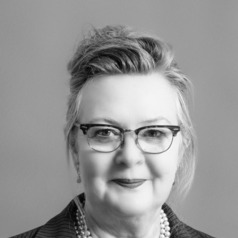
Linda Hassall
Senior Lecturer Humanities, Griffith University
LINDA HASSALL: is Deputy Convenor BA in Humanities and Field Study Coordinator Drama. She has held roles as Program Director for Creative Industries, School Humanities and Program Director Contemporary and Applied Theatre School Education and Professional Studies, Griffith University. Her practice research focuses on devising and producing contemporary performance and explores the relationship between theatre and climate change. She further explores developing sustainable production technologies in response to theatre’s carbon footprint. She is author of Theatres of Dust: Climate Gothic Analysis in contemporary Australian drama and performance landscapes (2021). She is an award-winning playwright Post Office Rose (2008) and director Salvation (2012). In association with Dr Tanja Beer and Dr Natalie Lazaroo, she is a co-chair of the Performing and Ecologies Research Lab (P+ERL) associated with the Climate Action Beacon (CAB) and Creative Arts Research Institute (CARI) Griffith University.
Links
Less ![]()
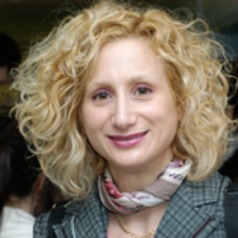
Linda Pagani
Professor, School of Psychoeducation and researcher at CHU Sainte-Justine, Université de Montréal
Linda Pagani is a professor with the University of Montreal's School of Psychoeducation, a researcher at the Research Centre at CHU Sainte-Justine (University Hospital Centre), and a member of the Groupe de recherche sur les environnements scolaires (School Environment Research Group) of the Fonds de recherche du Québec – Société et culture.
Less ![]()
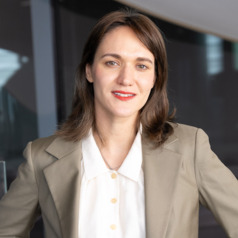
Linda Przhedetsky
PhD Candidate, Faculty of Law, University of Technology Sydney
Linda is an interdisciplinary researcher specialising in emerging technology policy. She is currently completing a PhD at UTS Law, which focuses on regulating artificial intelligence and automated decision-making systems. She is particularly interested in how these technologies can be used to facilitate or compromise access to essential services such as housing.
Prior to returning to academia Linda worked as a policymaker and has extensive professional experience in government, advocacy, and consumer affairs. She is passionate about developing meaningful, high-impact research that directly contributes to Australia's policy landscape. Her research into housing and technology has informed government reform processes, and she currently sits on the NSW Rental Commissioner’s Industry Reference Group.
She is a Research Fellow at the Gradient Institute, and most recently held the role of Associate Professor at the Human Technology Institute. She is also a Board Director at the Tenants' Union NSW, and previously served as the Executive Director of the Consumers' Federation of Australia.
Linda’s work has been featured extensively in Australian media, including on the ABC, The Guardian, The Saturday Paper, SBS, The Financial Review, and more.
Less ![]()

Linda Truong
PhD Candidate, Rehabilitation Sciences, University of British Columbia
Linda is wrapping up her PhD in Rehabilitation Sciences at the University of British Columbia. Her research focused on identifying and integrating social support into rehabilitation after a sport-related knee injury to help optimize recovery. Linda has more than 12 years of clinical experience working with patients with traumatic knee injuries, specifically those with ACL injuries.
Less ![]()

Linda Yueh
Fellow in Economics/Adjunct Professor of Economics, University of Oxford
Dr. Linda Yueh is Fellow in Economics at St Edmund Hall, University of Oxford, Adjunct Professor of Economics at London Business School, and Visiting Professor of Economics at Peking University.
She is a broadcaster, including for BBC Radio 4, and was the BBC’s Chief Business Correspondent and host of “Talking Business with Linda Yueh”, as well as Economics Editor for Bloomberg TV.
Dr. Yueh is Director of the China Growth Centre at Oxford, a member of the Policy Committee of the Centre for Economic Performance (CEP) at the London School of Economics and Political Science, an Advisory Board member of The Official Monetary and Financial Institutions Forum (OMFIF), and a Trustee of the Coutts Foundation.
She has advised the World Bank, European Commission, Asian Development Bank, World Economic Forum, among many others. She has been a Non-Executive Director of several FTSE companies, an advisor to the British Chambers of Commerce (BCC), and served on the Board of London & Partners, the official promotion agency for London.
She is widely published in academic journals and is the editor of the Economic Growth and Development book series at Routledge.
Her books include: Macroeconomics (co-authored with Graeme Chamberlin) (2006), Globalisation and Economic Growth in China (co-edited with Yang Yao) (2006), The Law and Economics of Globalisation: New Challenges for a World in Flux (editor) (2009), The Future of Asian Trade and Growth: Economic Development with the Emergence of China (editor) (2009), Enterprising China: Business, Economics and Legal Developments Since 1979 (2011), the award-winning The Economy of China (2010, paperback in 2012), and China’s Growth: The Making of an Economic Superpower (2013) to be published in Chinese in 2015.
Her latest book, China’s Macroeconomic Policy, was published in March 2015.
Less ![]()
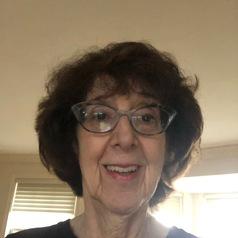
Linda J. Nicholson
Susan E. and William P. Distinguished Professor of Women and Gender Studies and Professor of History Emerita, Arts & Sciences at Washington University in St. Louis
I received my Ph.D. from the History of Ideas Department at Brandeis University in 1975, working under the direction of the philosopher, Alasdair MacIntyre. My first teaching position, from 1973-1974, was in the Philosophy Department at The University of Lancaster, Lancaster England. I began researching and teaching about Women and Gender Studies in the late 1970s when I was on the faculty at The State University of New York Albany. In January of 2000 I joined the faculty of Washington University in St. Louis as the Susan E. and William P. Stiritz Distinguished Professor of Women and Gender Studies and Professor of History. I have written and edited many books and articles about gender, including, my first book, Gender and History: The Limits of Social Theory in the Age of the Family (Columbia University Press, 1986), Identity Before Identity Politics (Cambridge University Press, 2008), and The Second Wave: A Reader in Feminist Theory ( Routledge, 1997). I was the editor of a 32 volume book series titled "Thinking Gender" with Routledge. My writings have been translated and published in French, Spanish, German, Japanese, Chinese, Turkish and Serbo Croation.
Less ![]()
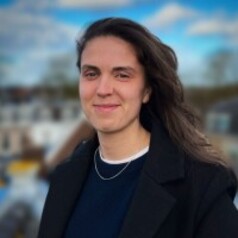
Linde Arentze
Researcher into AI and Remote Warfare, NIOD Institute for War, Holocaust and Genocide Studies
Linde is a PhD candidate in Conflict Studies and a member of the Intimacies of Remote Warfare (IRW) and Realities of Algorithmic Warfare (RAW) research programmes at Utrecht University. Her research focuses on the global development of advanced military technology and its effects on military-industrial relations, civil-military relations, and the character of warfare. Besides her work at Utrecht University, Linde is part of the interdisciplinary core team at the NIOD Institute for War, Holocaust, and Genocide Studies tasked by the Dutch government with investigating twenty years of Western interventionism in Afghanistan.
Less ![]()
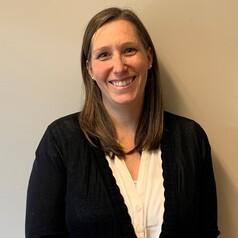
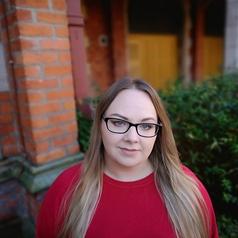
Lindsay Broadbent1
Lecturer in Virology, University of Surrey
Dr Lindsay Broadbent joined the Section of Virology at the University of Surrey as a lecturer in July 2022. Previously, Lindsay was a Wellcome Trust ISSF fellow in the Wellcome-Wolfson Institute for Experimental Medicine at Queen’s University Belfast. Her research focuses on respiratory virus-host interactions and subsequent innate immune responses. Dr Broadbent's expertise in developing well-differentiated human primary airway epithelial cell cultures (WD-PAEC) facilitates investigation of virus infection in a physiologically and morphologically relevant model. Her current research is directed towards the role of respiratory viruses in longer term lung damage and the development of chronic lung disease.
In addition to her research Dr Broadbent is actively involved with science outreach and engagement and has been involved in hundreds of media appearances.
Less ![]()

Lindsay DiCuirci
Associate Professor of English, University of Maryland, Baltimore County
Lindsay DiCuirci is an associate professor of English and affiliate faculty in Language, Literacy, and Culture at UMBC, specializing in early American literature and the history of the book. Her book, Colonial Revivals: The Nineteenth-Century Lives of Early American Books (University of Pennsylvania Press, 2019) examines the politics of collecting, preserving, and reprinting colonial books and manuscripts in the nineteenth-century U.S. Colonial Revivals is the recipient of the Bibliographical Society of America’s St. Louis Mercantile Library Prize, the Library Company of Philadelphia’s First Book Award, and the Early American Literature Book Prize. Other work has recently appeared in Reception, Early American Literature, and the edited collection, Apocalypse in American Literature and Culture (Cambridge UP, 2020). Her current research centers on Spiritualist print culture and social reform in the U.S. between 1840-1870.
Dr. DiCuirci teaches courses in early American literature and print culture, African American literature, women’s literary history, and critical theory. Her collaborative scholarship on working with students in archives can be found in Archive Journal and the forthcoming collection Students in the Archives (U of Illinois Press, 2025). In Fall 2022, with the help of a Hrabowski Innovation fund grant, Dr. DiCuirci’s seminar students produced a collaborative digital project with UMBC Special Collections entitled Digital Cruikshank: Etching & Sketching in Nineteenth-Century England.
She is the current director of the English Honors program at UMBC and the former director of the Dresher Center for the Humanities’ Humanities Teaching Labs initiative. Dr. DiCuirci is also an elected member of the American Antiquarian Society, one of the nation’s oldest learned societies and independent research libraries.
Less ![]()
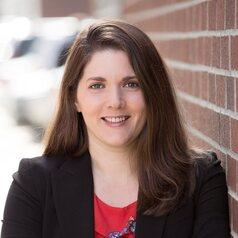
Lindsay Hedden
Assistant Professor, Faculty of Health Sciences, Simon Fraser University
I am an applied health services researcher leading a program of research is to inform the delivery of high-quality, accessible primary care with a particular focus on workforce policy and planning. I am currently an assistant professor in the Faculty of Health Sciences at Simon Fraser University and past Scientific Director of Health Research BC. I've held two post-doctoral positions with the BC Ministry of Health and the Vancouver Coastal Health Research Institute. My research program has three main foci: primary care workforce policy and planning, interdisciplinary team-based care, and most recently the corporatization and protfitzation of health systems. In addition to my own local research team, I co-lead the Health Systems Research Lab, a distributed network of health services researchers that I leverage to support cross-provincial, multi-methods research.
Less ![]()

Lindsay Helwig
Lecturer in Pathways, University of Southern Queensland
Dr Lindsay Helwig is a Lecturer in Pathways, teaching academic communication skills, critical and creative thinking, and English language. Her research is in the areas of Welsh historiography, popular culture, literature and postfeminism,
Less ![]()
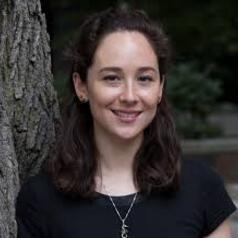
Lindsay Kobayashi
Assistant Professor, Department of Epidemiology, University of Michigan, University of Michigan
Less ![]()
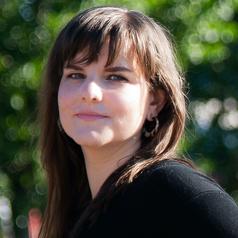
Lindsay Larios
Assistant Professor of Social Work, University of Manitoba
Dr. Larios is an interdisciplinary critical policy researcher. She studies citizenship and immigration in the Canadian context, in particular, as it intersects with family and reproductive politics and policies. Her most recent work focuses on the politics of pregnancy and childbirth and precarious migration as an issue of reproductive justice.
Less ![]()

Lindsay Middleton
Food Historian and Knowledge Exchange Associate, University of Glasgow
Dr Lindsay Middleton is a literary historian of nineteenth-century food writing, and Knowledge Exchange Associate for the College of Arts and Humanities at the University of Glasgow.
Dr Middleton's research focuses on the literary qualities of recipes and cookbooks, analysing the representation of culinary technologies in order to understand how nineteenth-century authors situated themselves in the past, present, and future. Her work ranges from the history of tinned foods to the publications of Victorian chefs Agnes Marshall, Alexis Soyer, and Georgiana Hill. She also researches Scottish food history, and invalid cookery in the Scottish context.
As Knowledge Exchange Associate, Dr Middleton works with a range of researchers and industry stakeholders to create impact and partnership opportunities. In particular, she is interested in the ways that Arts and Humanities research can help transform the Scottish food industry, and food's potential within heritage properties.
Less ![]()
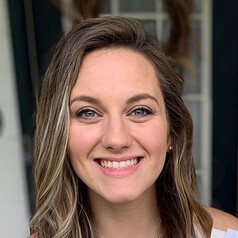
Lindsay Mullins
Ph.D. Student in Marine Science, Mississippi State University
Lindsay Mullins is a Ph.D. student in marine science. She is involved in the Marine Fisheries Ecology Program and partners with the Northern Gulf Institute and the Marine Fisheries Ecology Program to develop resources to promote sustainable shark fisheries and enhance science communication and outreach.
Less ![]()
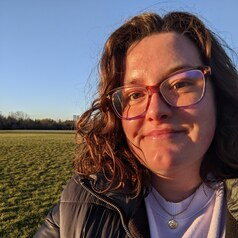
Lindsay C. Sheppard
PhD Student, Sociology, York University, Canada
Lindsay C. Sheppard is a PhD student in the Department of Sociology at York University. She has a MA in Child and Youth Studies from Brock University. Lindsay is curious about questions of gender, age, collective feminist identities, and digital feminism. Using a feminist posthuman framework, her proposed dissertation will explore girls' feminist activism on Instagram, to better understand the materialities and discourses that shape the possibilities for digital feminism and feminist identities. Lindsay's dissertation aims to complicate binaries of online/offline, activism/slacktivism, and individual/collective.
Less ![]()
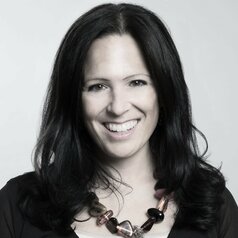
Lindsay Sarah Krasnoff
Research Associate, Centre for International Studies & Diplomacy, SOAS, University of London
Dr Lindsay Sarah Krasnoff is a historian, writer, speaker, and consultant, author of Basketball Empire: France and the Making of a Global NBA and WNBA (Bloomsbury, 2023) and The Making of Les Bleus: Sport in France 1958-2010 (Lexington Books, 2013). She has written on French and global sports for a range of news and sports media outlets, including VICE Sports, CNN International, The Washington Post, The New Yorker, and more. She previously served as a historian for the U.S. Department of State's Bureau of Public Affairs, with a Europe-centric portfolio, and also worked with the Department's Sports Diplomacy office. Outside of her consulting practice, she is the Founding Director of FranceAndUS, and co-directed the SOAS University of London “Basketball Diplomacy in Africa” oral history project. Dr. Krasnoff holds a PhD in History from The Graduate Center (City University of New York), MA in Journalism and French Studies (NYU), and BA in International Affairs (The George Washington University).
Less ![]()
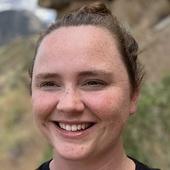
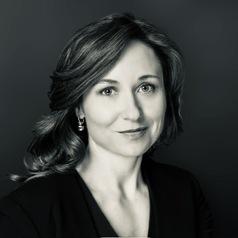
Lindsey Cormack
Associate Professor of Political Science, Stevens Institute of Technology
Created & Maintains DCinbox database of official legislator to constituent e-newsletters.
Author: How to Raise a Citizen & Why It's Up to You to Do It
Areas of focus: American Politics, Political Communication, Congress, Veterans Politics, Women in Politics, Inter-branch Relations
Less ![]()
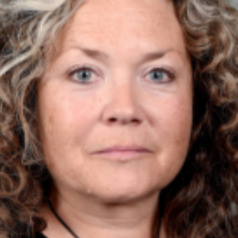
Lindsey Mean
Associate Professor, School of Social and Behavioural Sciences, Arizona State University
Lindsey Mean is an associate professor in the School of Social and Behavioral Sciences in the New College of Interdisciplinary Arts and Sciences at Arizona State University. She is also an affiliated faculty members with the Global Sport Institute at ASU.
Mean's research focuses on the intersection of identities, sport, gender and sexuality, ideology and culture, discourses, language and representational practices across multiple sites and levels of enactment.
She received her doctorate in psychology from the University of Sheffield in England.
Education
PhD Social and Applied Psychology, University of Sheffield, U.K.
BSc. Psychology (Honors), Plymouth Polytechnic (now University of the Southwest), U.K.
Less ![]()
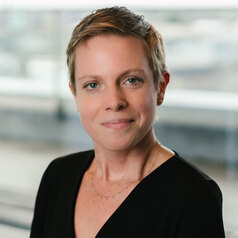
Lindy Brady
Senior Lecturer in Medieval History, Edge Hill University
I received my BA and MA from Brown University and my PhD from the University of Connecticut. Before joining Edge Hill, I taught in the Department of English at the University of Mississippi and the School of History at University College Dublin. I am a Fellow of the Royal Historical Society and a Fellow of the Society of Antiquaries. My work focuses on transcultural and multilingual connectivity in early medieval Britain and Ireland. My first book, Writing the Welsh borderlands in Anglo-Saxon England (Manchester University Press, 2017) was winner of the Best Book on an Anglo-Saxon Topic Publication Prize from the International Society for the Study of Early Medieval England in 2019 and the Southeastern Medieval Association award for best first book in 2020. My second book, The Origin Legends of Early Medieval Britain and Ireland (Cambridge University Press, 2022) was published last year, and I have just completed a Cambridge Element entitled Multilingualism in Early Medieval Britain.
I have held fellowships as a Text Technologies Fellow at Stanford University, A.W. Mellon Postdoctoral Fellow in Medieval Studies at the Medieval Institute at the University of Notre Dame, British Academy Visiting Fellow at the University of Birmingham, Marie Skłodowska Curie COFUND Fellow in the Trinity Long Room Hub at Trinity College Dublin, and Resident Fellow in the Centre for Advanced Studies at the University of Tübingen. Current projects include a volume on multilingualism for the Cambridge Elements series and a larger project on intellectual connectivity in the Viking Age.
Research Interests
My work focuses on historical and textual connections across the early medieval Irish Sea zone, encompassing material in Old English, Old Irish, Middle Welsh, Old Norse, and Latin.
Less ![]()
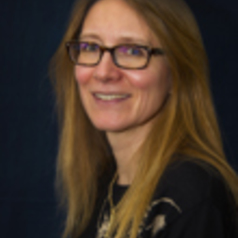
Line Nyhagen
Line is Reader in Sociology at the Department of Social Sciences, Loughborough University, United Kingdom. Her research is interdisciplinary and crosses subject areas within sociology and political science. She gained her PhD in Sociology from the University of Southern California, Los Angeles, USA, in 1998.
Line’s main research interests are in the areas of religion, gender, feminism and women’s movements, migration and ethnic relations, citizenship and identities, and public policy. She is an expert in the sociology of gender and in the sociology of religion.
Line's latest book, 'Religion, Gender and Citizenship: Women of Faith, Gender Equality and Feminism' (with Beatrice Halsaa, published April 2016), has already been called a 'landmark contribution to scholarship'. The book explores views and experiences of Christian and Muslim women living in Norway, Spain and the United Kingdom related to their faith, identities and citizenship. It also examines their views on gender equality, women's movements and feminism.
Line’s previous book, Majority-Minority Relations in Contemporary Women’s Movements: Strategic Sisterhood (with Beatrice Halsaa; Palgrave Macmillan 2012), has been reviewed in numerous journals, including The Sociological Review, NORA - Nordic Journal of Women’s Studies, the International Journal of Iberian Studies and more (for links to and excerpts from reviews, click here. The book compares and contrasts contemporary women’s movements in Norway, Spain and the United Kingdom, with particular attention to relations between ethnic majority and ethnic minority women and politics.
Both of Line’s most recent books have emerged from the research project Gendered citizenship in multicultural Europe: The impact of contemporary women’s movements (see www.femcit.org), funded by the European Commission. Line was Work Package Leader for the theme “Multicultural citizenship: Intersections between feminism, ethnic identity and religion”, and led an international, collaborative team of researchers. Her work within FEMCIT also included a study of how women’s movement activists understand citizenship (see Nyhagen Predelli, Halsaa and Thun 2012).
Line has initiated, worked on and led several research projects that have investigated the experiences of ethnic minorities, including Muslim women and men, ethnic minority women’s organizations, and immigrant organizations. In a project sponsored by the Research Council of Norway, she studied immigrant organizations in Norway with a view to their involvement in political decision-making processes. The project followed on from her previous research on the national political influence of ethnic minority women’s organizations, which was commissioned jointly by the Norwegian Research Programme on Power and Democracy and the Norwegian Ministry of Children and Family Affairs. In the field of migration and ethnic relations, she has also studied the views and practices of Muslim women and men in relation to gender, which involved in-depth interviews with Muslims in Norway of Pakistani and Moroccan backgrounds. She led the evaluation of the Contact Committee for Immigrants and the Authorities in Norway, commissioned by the Norwegian Ministry of Local Government and Regional Development. Line has also engaged in historical-sociological research on gender and religion, published in her book Issues of Gender, Race, and Class in the Norwegian Missionary Society in Nineteenth Century Norway and Madagascar (The Edwin Mellen Press, 2003) and in journal articles.
Less ![]()
- Market Data





















